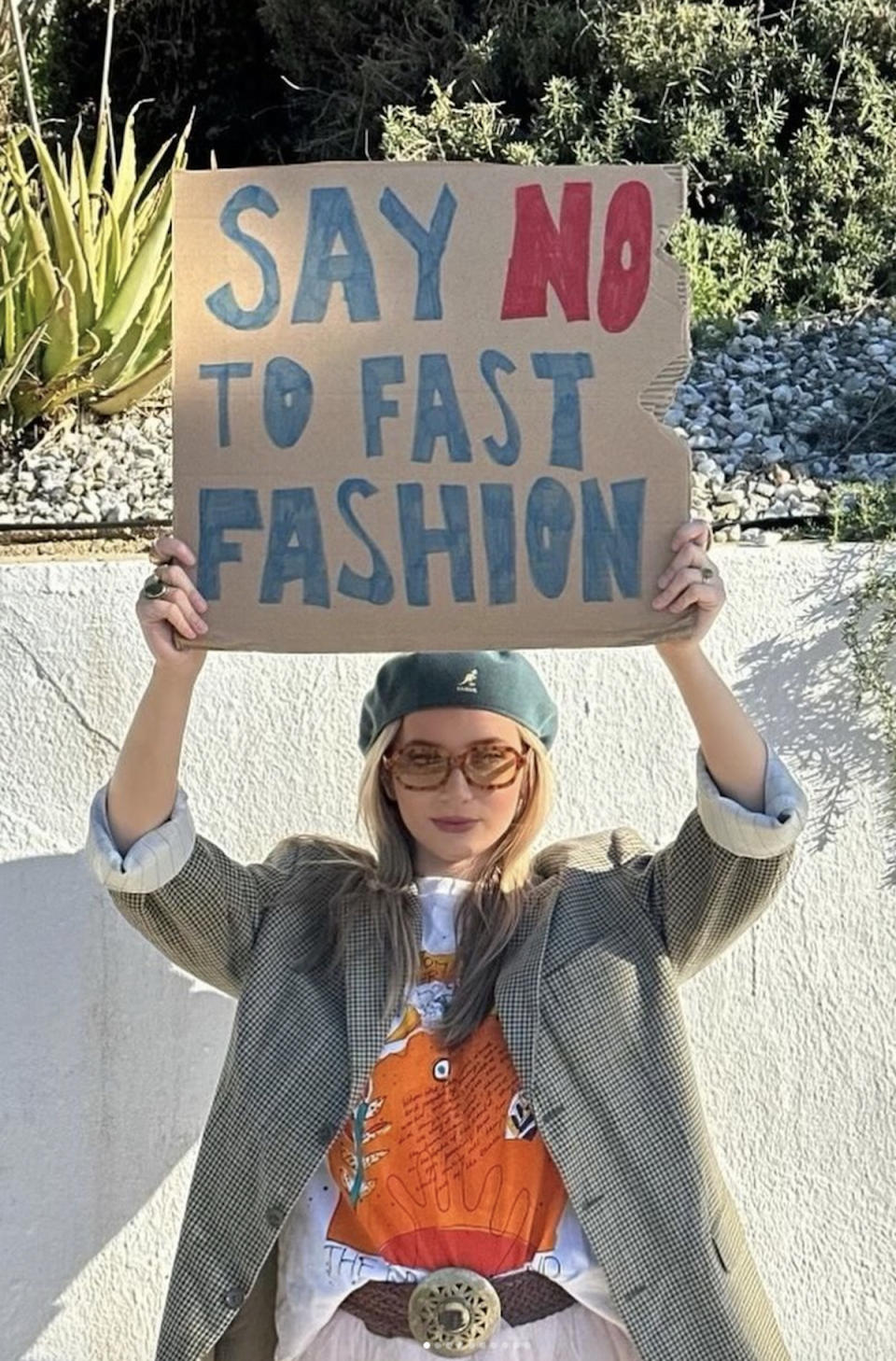These Students Would Rather Be Naked Than Wear Shein

Shein’s mounting ethical concerns have pushed some Gen Zers over the edge and onto the picket line.
Students throughout Los Angeles will be protesting—in robes and towels, touting signs that read “I’d Rather Go Naked Than Wear Shein”—in front of the ultra-fast fashion brand’s LA distribution corporation site on Earth Day in an attempt to make a global call to action against the fast fashion industry’s environmental and ethical transgressions.
More from Sourcing Journal
Alexis “Lexy” Silverstein, a trailblazer in the sustainable fashion movement recognized for sparking a protest against the Fashion Institute of Design & Merchandising (FIDM) partnership with Shein, is spearheading the event while Remake, a nonprofit and global advocacy organization fighting for fair pay and climate justice, is backing it.
“We’re always taught that we’re the future of the fashion industry,” Silverstein, a FIDM student, told Sourcing Journal. “But there is no future of the fashion industry if we work with companies like Shein.”

The purpose of the protest, Silverstein said, is to raise awareness.
“I had this ‘aha’ moment of realizing this about the fashion industry, but there are still people out there who don’t know about this,” she said. “We really just want to create some noise around this topic and shed light on the effects of fast fashion—not only on our planet but on the people and animals as well. We just want consumers to be educated on the effects of their shopping habits.”
The activists are urging consumers to stand with them by stopping their support (aka, purchases) of the beloved by Tik Tok brand until their demands are met.
“Shein, as a leading figure in this industry, churns out thousands of styles at breakneck speeds, contributing to a culture of disposability and disregard for the ecological and human cost of what we wear,” the protest invitation reads.
Those demands include becoming transparent about its supply chain and business practices, providing clear evidence of where and how its garments are made; halting the mass production of disposable garments; ceasing greenwashing tactics and implementing genuinely and verifiably sustainable practices; and ensuring fair pay and safe working conditions for all workers throughout the supply chain.
“Shein operates in such an aggressive pattern of copyright infringement that it amounts to racketeering and it’s not just this one problem,” Silverstein said, noting a laundry list of questionable behaviors such as overproduction and labor violations. “I feel like if we target the biggest giant and open the consumer’s eyes, there’s hopefully going to be a ripple effect through the rest of the industry.”
The student-led event underscores a collective demand—not just amongst the industry’s next generation of players—for transparency, sustainability and justice, echoing parallel sentiments from student protestors targeting Boohoo in the UK. Together, these two events represent a “unified front” against the industry’s detrimental practices.
“Personally, I want to raise awareness for anyone passing by; if even one person decides not to support Shein anymore or asks to learn more, it’s a success,” Harmony Richards, co-community organizer for the Los Angeles Remake hub, said of the protest. “It’s the opposite of some sustainably driven company slogans that may compare their products to being the next best thing to being naked or barefoot.”

